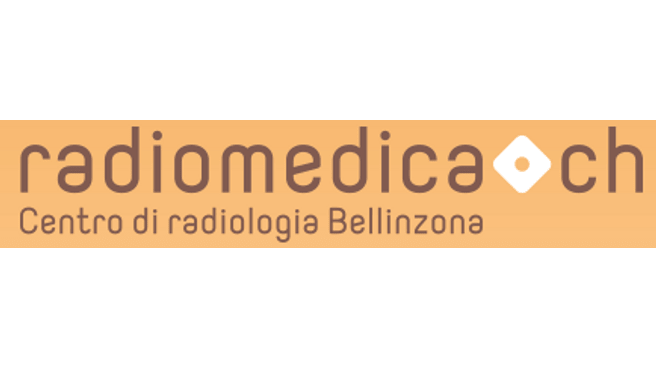Please use Microsoft Edge, Google Chrome or [Firefox](https://getfirefox. com/).
Belloni Gianmarco (Bellinzona)
Do you own or work for Belloni Gianmarco?
About Us
Welcome to Radiomedica
Radiomedica is a Radiology Center dedicated to MRI and ultrasound examinations both diagnostic and interventional.
In fact, Dr. Elena Cauzza wanted to offer Radiomedica to the local area, both to complement the diagnostic approach of xDonna, but above all to ensure quality, proximity and experience for patients. A Radiology Center focused on radiology consultation to treating physicians and specialists in the territory.
Alongside Dr. Elena Cauzza they provide their expertise to help patients and physicians Dr. med. Gianmarco Belloni, a specialist in diagnostic radiology with many years of experience in the canton, and technical staff Barbara Bernetti and Elena Mongilardi: both specialists with Master's degrees in Magnetic Resonance Imaging.
Magnetic Resonance Imaging
What is an MRI?
Magnetic Resonance Imaging (MRI) is a diagnostic technique that does not use X-rays or radioactive substances. The human body is exposed to an intense magnetic field and radiofrequency pulses. This induces an emission of ettromagnetic signals from the human body that are processed and converted into images, the interpretation of which provides useful indications for the diagnosis of any pathologies or irregularities. Magnetic Resonance Imaging is a non-invasive diagnostic examination and, according to current knowledge, does not result in significant biological effects on patients without contraindications and is performed in accordance with safety regulations and standards (in order to rule out risk factors in your case, please answer the questions in the attached questionnaire).
However, it is prudent not to perform the examination .
Preparation and conduct of the examination:
The examination is not painful or bothersome.
-
Before the examination, you will be assigned a booth in which you can prepare yourself properly by removing all your clothing except your underwear and socks and put on the gown that will be provided. If the MRI investigation involves the head, removal of face makeup and hairspray will also be necessary.
-
You will also need to deposit jewelry, wallet, watch, piercings, glasses, contact lenses, mobile dental appliances, hearing aids in the dressing room,
-
hair clips and any other metal objects.
-
Depending on the organ involved, the examination may last from about 30 minutes to 1 hour, and you may be asked by the technical staff to hold your breath during certain phases of the examination.
-
You will be made to sit on the examination table. Depending on the body district to be studied, dedicated "coils" will be placed. Then the couch will be slowly introduced inside the tunnel of the apparatus.
-
Throughout the examination, rhythmic noises of varying intensity caused by the normal operation of the apparatus are audible (You will be provided with earplugs or noise-canceling headphones). - It is necessary to maintain a maximum degree of immobility, breathing regularly, because any movement can alter the quality of the images, impair their interpretation, and jeopardize the diagnostic result.
-
You will be continuously monitored and will have a bell at your disposal to call for operator intervention if needed. We always take care to respect the time of your reservation. Urgent examinations may, however, cause an unexpected wait; in this case we will inform you promptly, confident of your understanding.
Why the contrast medium?
In this investigation it may be necessary to use of an intravenous contrast agent (Gadolinium) to better represent the anatomical structures being examined and to recognize pathological changes more accurately. The contrast agents currently available are extremely safe products and may occasionally give reactions. The staff of the Radiation Diagnostic Service is trained to intervene in the best way should this occur. The types of reactions that occur in sporadic cases are:
- Minor reactions, such as sneezing or nausea. These reactions do not require any medical therapy.
- Severe reactions (0.01%): these reactions usually require medical therapy and include, for example, difficulty breathing, irregular heartbeats, shock.
In the case of severe renal insufficiency, in dialysis or transplant patients, administration of the contrast agent (Gadolinium) carries the risk of developing systemic nephrogenic fibrosis, a rare disease characterized by thickening of the skin and connective tissues, which is debilitating and poten- tial.
Claustrophobia
For severely claustrophobic patients, MRI examination may be difficult. Should the administration of of anxiolytics he or she will have to be accompanied by a person on the day of the examination and will not be allowed to drive.
This text has been machine translated.
Languages
Location and contact
Belloni Gianmarco
-
office address
Viale Officina 7 6500 Bellinzona
-
Phone
0918... Show number 091 825 32 32 *
-
Write an e-mail
- Visit site Visit site
- * No listing required
Ratings and reviews
Do you wish to rate and review "Belloni Gianmarco "?

3 reviews from older local.ch. archives
Data from June 2019
* These texts have been automatically translated.
Other listers

Belloni Gianmarco


